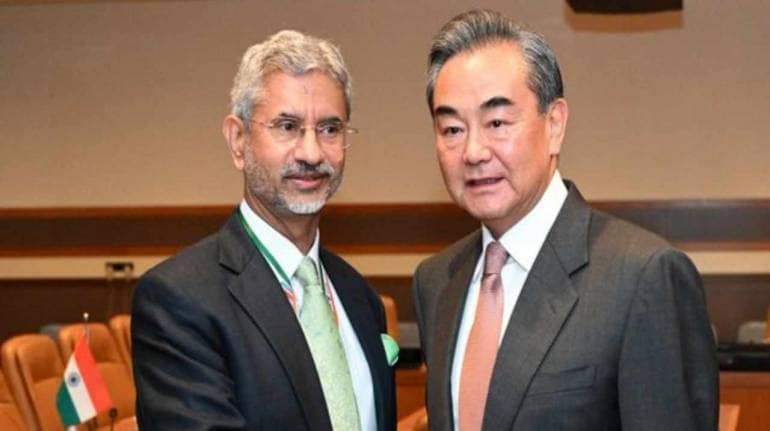



Chinese Foreign Minister Wang Yi’s outreach by offering to visit India was the strongest signal to thaw ties, as the two countries find themselves on the same page over resisting United States pressure on the Russian intervention in Ukraine and non-US Dollar oil trade. Europe, West Asia, and the Asia-Pacific are witnessing rapidly shifting alliances over what is perceived as unilateral US pressure to take sides in its geopolitical rivalries. Wang Yi is scheduled to visit India for two days on March 24-25 after attending the Organisation of Islamic Countries (OIC) foreign minister’s meeting in Islamabad.
Cracks began appearing after External Affairs Minister S Jaishankar evidently pushed back against joining the US, Australia, and Japan in taking a hard line on Russia in the February 11 Quad ministers meeting. This was followed by India abstaining in votes in the United Nations (UN) on the Ukraine crisis.
This inspired a US State Department cable earlier this month asking its diplomats to instruct India and the United Arab Emirates (UAE) that their “neutrality” put them in “Russia’s camp”. Later ostensibly recalled, meant it was a deliberate leak to convey the US displeasure.
Earlier last week, India’s purchase of 3 million tonnes of Russian crude and exploring non-Dollar oil trade with Moscow was characterised by White House Press Secretary Jen Psaki as putting New Delhi on the “wrong side of history”. This is despite oil trade with Russia being exempt from the US sanctions under European pressure which cannot completely alienate the world’s second-largest oil producer.
Unnamed Indian officials meanwhile shot back on March 18 seemingly at Psaki’s comment saying India’s “legitimate energy transactions should not be politicised.” Indian experts have also warned about an imminent “de-dollarization” by many central banks seeing how it is repeatedly weaponised.
Amidst this backdrop Wang’s proposal included even visits by top politburo members and an ‘India-China Civilization Dialogue’ – measures that could have only been approved by the highest in the Chinese leadership. Rattled upon seeing its frontline anti-China State reconciling with the very country, US Under Secretary of State Victoria Nuland came calling on March 19, with Bangladesh and Sri Lanka too as stops. The same day, Japanese Prime Minister Fumio Kishida met with Prime Minister Narendra Modi, with the joint statement referring to the war as a “humanitarian crisis”, and no implied condemnation of Russia. Kishida attacked Russia only in his personal statement.
Nuland’s Dhaka visit itself drew a blank, when she merely said both sides “had a rich conversation…(over) autocracies and democracies” when asked how she viewed the host’s stance on Ukraine. Ironically, Biden’s Summit of Democracies held in December did not see Bangladesh being invited too, along with the UAE and Saudi Arabia — an ideological binary that does not respect alternative forms of government borne out of each country’s reality and undermines their say in global politics.
West Asia had long began drifting away from the US, after Saudi Arabia and the UAE refused to pump more oil to cool soaring prices and save Biden from rising domestic inflation. This was in response to Biden calling Saudi Arabia a “pariah state” and releasing a report on the alleged murder of Saudi journalist Jamal Khashoggi that implicated Crown Prince Mohammed bin Salman (MBS). The Emiratis meanwhile didn’t like the Financial Action Task Force (FATF) putting them on a grey list for failing to tackle money-laundering, after the UAE abstained in the UN from anti-Russia motions.
Both MBS and UAE Crown Prince Mohammed bin Zayed Al-Nahyan (MBZ) have also been refusing to take Biden’s calls for engaging the OPEC+ nations in increasing oil production. But the biggest jolt was the UAE hosting Syrian President Bashar al-Assad, against whom the UAE was aligned with the US in the destructive 10-year-old conflict, as Washington loudly protested the visit.
The sight of a desperate Washington engaging Venezuela and rushing to wrap up the Joint Comprehensive Plan of Action (JCPOA or the Iran Nuclear Deal) — both heavily sanctioned by the US itself — so that the sanctions removal can free up their oil production and lower prices has near permanently hurt US credibility. It is a different matter they cannot match the Russian capacity to pump 7 million barrels per day.
Modi seems to have read the writing on the wall when he expressed condolences over the airliner crash in China’s Guangxi, hinting Wang’s gesture might be reciprocated. Whether a genuine desire for de-escalation or pragmatic rapprochement, the outcome only buttresses the emerging ‘Asian Century’ of which India should not be a mere physical part.
Parth Satam is a journalist who has been covering India’s defence sector for more than a decade. Twitter: @ParthSatam
Views are personal and do not represent the stand of this publication.
Discover the latest Business News, Sensex, and Nifty updates. Obtain Personal Finance insights, tax queries, and expert opinions on Moneycontrol or download the Moneycontrol App to stay updated!
Find the best of Al News in one place, specially curated for you every weekend.
Stay on top of the latest tech trends and biggest startup news.